by Wayne White
Oil markets received seemingly good news earlier this week: several closed Libyan export terminals would reopen. Yet not only is Libya still beset by a host of crippling problems, even opening the oil taps a bit more remains somewhat iffy. In fact, developments only within the past 2 weeks showcase critical failings that continue to block most aspects of restoring some sense of stability and normalcy. This is a situation crying out for high-level international attention.
Back on April 6, central authorities negotiated with the rival federalist regional government in the east — led by former anti-Qadhafi rebel leader Ibrahim Jathran — the reopening of the smaller two of four oil export terminals under Jathran’s control (and perhaps the other two in about a month). In exchange, Tripoli agreed to drop charges against some of Jathran’s people, pay back salaries to public sector oil employees in the east siding with Jathran, and form a committee to investigate central government corruption. Separately, the government inserted in its new budget a 67% pay increase for oil workers, hoping to secure greater loyalty.
In reality the situation on the ground is more dicey. The cash-strapped Jathran’s cooperation increased only after his effort to export bootleg crude collapsed because of the interception of the first renegade tanker by the US Navy. Since April 6 the government-affiliated Libyan National Oil Corporation (NOC) has also refused to reopen the two eastern Libyan terminals until Jathran’s militiamen turn over the terminals completely to Libya’s official “Petroleum Facilities Guard” (PFG) force.
This has transpired while in western Libya only offshore export terminals remain open because of an ongoing feud between the government and militias controlling both the coastal terminals and the inland oil fields. A recent government-militia agreement to reopen all western Libyan terminals collapsed, with the militias involved falling out with each other over the accord. This makes renewed negotiations by Tripoli with multiple conflicting militia factions that much more difficult.
Meanwhile what passes for the Libyan central government has been struggling to make ends meet since the beginning of the year with a paltry 100,000-150,000 barrels per day (bpd) of oil out of a potential 1.3 million bpd. Worse still, with most border crossings outside official control, customs revenue is also fraction of what it once was.
Nonetheless, authorities are still saddled with Qadhafi-era payments of immense subsidies, such as one that keeps bread at 2 cents a loaf. Then there is the massive, but incredibly dysfunctional, civil service that includes a significant percentage of Libya’s adult population who were placed on the payroll by Muammar Qadhafi to minimize opposition.
This financial crunch has compelled the government to drop most infrastructure projects aimed at run-down roads, schools, hospitals and the like. Still, to balance this year’s budget, the Central Bank had to devalue the Libyan dinar up to 2.00 per US dollar from the previous rate of 1.25. And in this unsettled environment (both politically and financially), investors have fled or remain on the sidelines; Tripoli recently cancelled two conferences, one on oil and gas investment and the other on banking.
Libya’s difficulties are there for all to see. The staff at all 146 branches of one of Libya’s largest banks, the state-owned Jumhuriya, went on strike for two days beginning April 2 after another one of its employees was gunned down while on the job. On the 6th, all public and private sector workers in Benghazi also went on strike over worsening violence there, demanding the Libyan parliament, the General National Congress (GNC), to step down. The strike closed Benghazi International Airport, and on April 7 Lufthansa and Austrian Airlines cancelled flights to Tripoli International because of the explosion of a large bomb on the main runway last month; British Airways and Italy’s Alitalia did so immediately after the bombing.
Amidst all this trouble is an ongoing government crisis in Tripoli. It was rumored that the cabinet of caretaker Prime Minister Abdullah al-Thinni had resigned because the GNC refused its appeals for more power and a longer mandate (it has to be renewed every two weeks) to address Libya’s pressing problems. Word of the request was true, but not the resignation. The GNC simply responded by ordering al-Thinni on April 8 to form a new caretaker government within a week or resign.
Illustrating the GNC’s lack of credibility and militia power was a video released to all Libyan TV stations earlier this month showing the clearly fearful Islamist head of parliament, Nuri Ali Sahmein, begging a militia commander, Haitham al-Tajouri, to understand why he was caught in his residence with two women. Al-Tajouri is the leader of the “Reinforcement Front” militia (supposedly in government service) that kidnapped briefly then Prime Minister Ali Zeidan last October. In response to the resulting public outcry, Libya’s prosecutor general has summoned both to determine whether al-Tajouri engaged in blackmail or Sahmein broke any Libyan moral laws.
What is supposed to be the nascent Libyan national army numbers only 8,000 — far fewer than the militias potentially arrayed against it. The preparation of even that small force with US, UK, Italian and Turkish assistance has also been delayed by ongoing unrest. Ousted Prime Minster Ali Zeidan commented from his refuge in Germany: “Really there is no army. I thought there was one, but then I realized there really isn’t any.” So the government conducts ongoing negotiations with a welter of semi-official, government-paid, but unruly militias over all manner of issues (with the militias’ dominant loyalty to their own localities, tribes, charismatic commanders, or even certain factions within the GNC).
Desperation among Libyan government leaders was reflected in Foreign Minister Mohammed Abdelaziz’s stunning statement last month calling for the establishment of a “constitutional monarchy;” he even contacted the son of Libya’s late King Idris I. Idris, more than a constitutional monarch, was overthrown by Muammar Qadhafi in 1969. While today his rule could appear idyllic to many Libyans in retrospect, Idris anchored his rule on a mainly eastern tribal and religious base — hardly a model for Libyan national unity.
In this atmosphere, the drafting of a new constitution by the Libyan Constitutional Assembly (elected by a paltry turnout in February) does not offer much hope for real change. Indeed, a referendum in a few months to approve whatever the drafters put forward could be a very messy and contentious affair. As Libya staggers from one crisis to another, it’s becoming ever clearer that it needs outside help.
Although it is not part of the planned political process, the US, UN, EU, and Arab League should urgently offer to host a meeting of all parties (including not only government leaders, but also the most powerful militia commanders, tribal leaders, and Jathran) in a neutral venue outside Libya. The authorities in Tripoli might reject such a conference as undermining their sovereignty (although their current sway is minimal). There is little to lose, however, by offering to bring the players together under one tent in an effort to focus on how so many of them lose amidst chaos and to showcase the benefits of greater national cooperation.

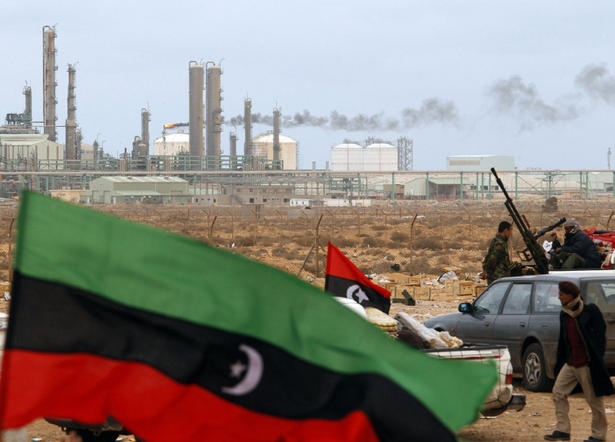
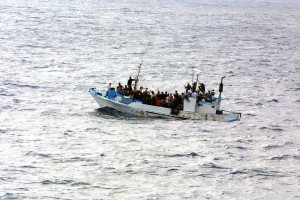
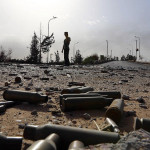
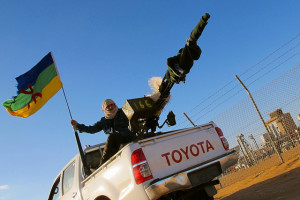
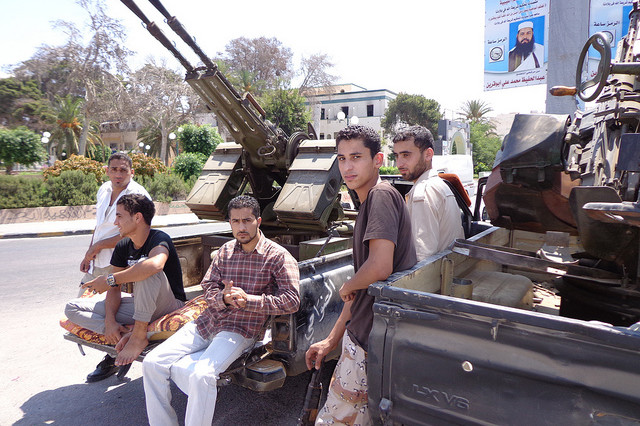
Mr. Whites last paragraph doesn’t instill much confidence for the future. Where are the other state dept. experts who pushed this “Clusterfuck” upon the country? Perhaps Ms Nuland of Ukraine fame had her fingers in the mix. Looking at this from another angle, one might get he impression that this was all thought out many years ago, even knowing the results, which have made quite a few individuals very rich. Of course, the citizens of all these war torn countries are just collateral damage in the eyes of those who instigated said regime change[s], sitting in their “Ivory Towers”, safe and sound, comfortable in the knowledge that others will suffer, pay the price when it falls apart. Quite disgusting IMHO.
RE: “This is a situation crying out for high-level international attention.”
Oh, come on Mr. White! You must remember that a high-level international attention to Libya is the reason of today’s problems same way as in Iraq. How many tune-up from “International Community” will these countries need for our stupid rush in. Your “freedom fighters” of yesterday are turning today to terrorists who kill US diplomatic personell. With idiots armed to the teeth you simply cannot deal same way as you deal with normal citizens. Gaddafy knew that and we will learn fast, if not keeping the old “see no evil, hear no evil” if convenient for our goals. We should simply abandon our high-level attention to other people, not to expand it.
Fine report. But perhaps restoration of the monarchy would be a good thing.